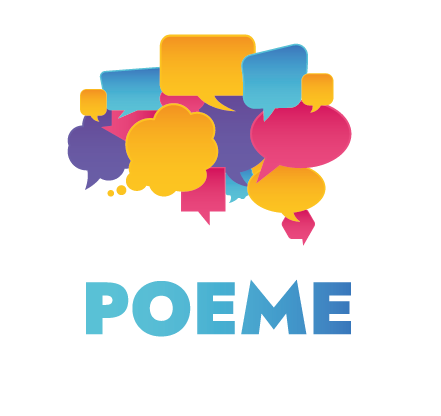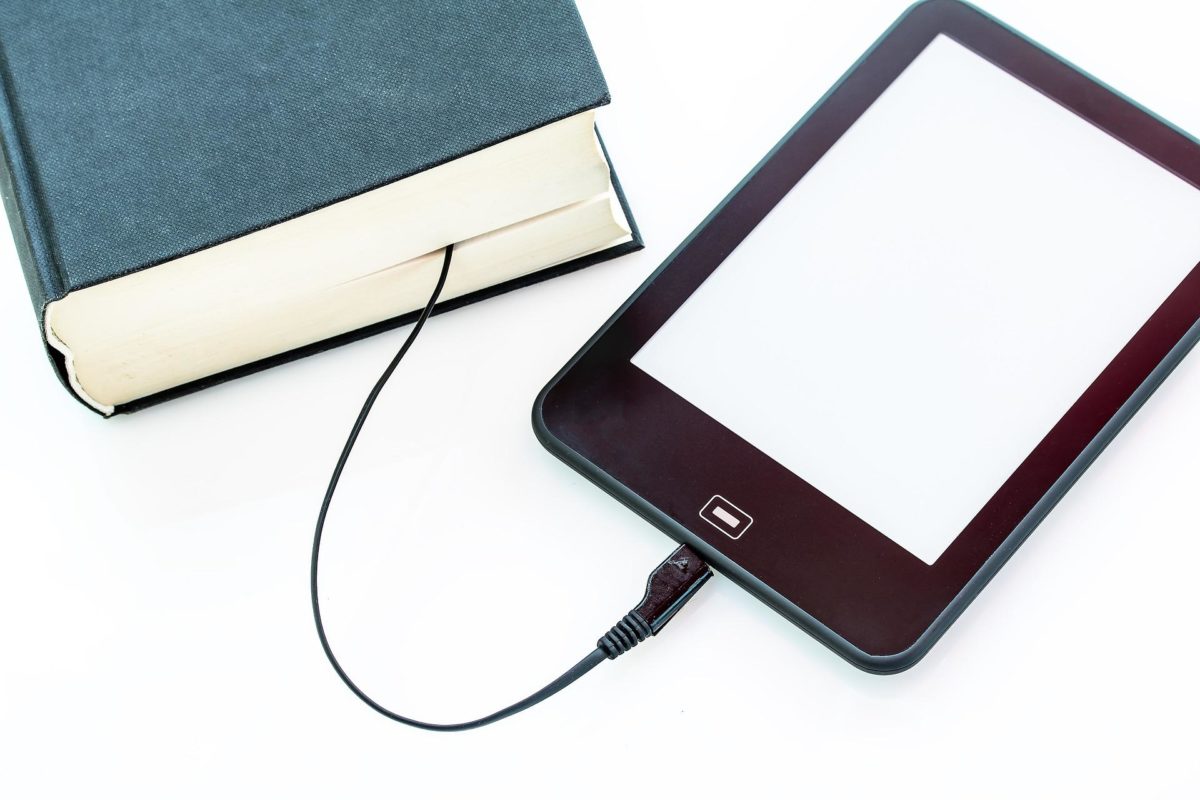It is commonly accepted that the introduction of modern technology in teaching methods has a positive impact on the output of the educational system. One of the goals of this programme (ERASMUS-POEME) is the creation and development of e-books (electronic books).The topics covered in e-books focus on the cultural heritage of the countries whose partners participate in POEME.
The use of e-books as teaching material is absolutely logical. E- books contribute to the improvement of the teaching process because they give us the option to illustrate the teaching goals at the beginning of a lesson. We can also easily store all the resources used and have access to external sources of information. They finally help us to implement complex work.
At the same time, e-books allow the use of short videos and audio files in class, giving us very important information for our lessons. They facilitate the communication among students, instructors/teachers, parents and also promote the cooperative learning method (multi level groups). Last but not least, their content may be easily updated.
E-books hold an important place in teaching process so it is worth mentioning the way they affect the educational system in view of the improvement and simplification of learning experiences as well as the facilitation and assistance in educational projects.
One of the advantages of introducing e-books in teaching-learning process is that they give us various options of interactive practices because they include the appropriate tools, such as underlining, searching, reading aloud, adding bookmarks, handy use of dictionary, changing the font size (increasing or decreasing) or the brightness , etc. In this way, students gradually become capable to learn “how to learn”. Furthermore, knowledge is introduced and depicted to students in multiple ways.
Besides the texts, e-books can embody music, animation, videos and audio files with explanations. Especially videos make the learning process more attractive. Students may pause or watch again and again the material they have, in order to comprehend it. Watching short or longer videos in class helps the students to keep in mind the information provided rather than reading it in written texts. Practice has shown that students mainly focus on the substance of the course when it is accompanied by videos or relevant audiovisual material. This also helps them to improve their ability and capacity to learn and recall a lot of information. By means of this vivid experience, the oral speech skills of learners are supported and improved, especially of those with a different native language.
Another advantage of e-books is that they usually involve interaction and self- assessment methods. Of course, we can find it in conventional books as well. However, in e-books, they appear in every main task and not at the end of a unit. This happens in the form of quizzes, questionnaires and various exercises. Self – assessment helps students to find out if they have acquired the new knowledge taught in class or their weakness at special points. Self – evaluation process gives students and instructors prompt results in order for both parts to alter and improve their participation in the teaching – learning process.
E-books may be easily carried. Since the majority of students own portable electronic devices (smartphones, tablets, laptops), these can accompany them all day long. That also allows them to refer to their notes and the course material any time of the day. Opposite to conventional heavy paper books, they can have it all just in a small smart electronic device!
Another thing to consider is the fact that traditional books cannot be easily updated and at regular intervals. Every time we need to change and update a traditional book we must have a new edition of it. That costs a lot of time and money. On the other hand, we can improve, change and update an e-book in short time and at a limited cost.
In any case, we do not argue that e-books are meant to extinguish conventional paper books. On the contrary, their coexistence must be imaginative. It may promote and contribute to the achievement of learning objectives. It may also reinforce the cultivation of students’ love for reading since their early age; obviously an attempt to do so would be quite demanding.
*Image by Myriams-Fotos from Pixabay
SOURCES
HELLENIC PEDAGOGICAL INSTITUTE (2009). A proposal for the design (conception – format) and introduction of << E- BOOK >> in Educational System. It was posted on 11 May 2022 by http://www.pi-schools.gr/paideia dialogos /eBook.pdf
Ξανθόπουλος, Α. (2011) Έντυπο ή ηλεκτρονικό σχολικό βιβλίο; [Printed or electronic textbooks?] Στο Χ.Θ. Παναγιωτακόπουλος (Επιμ.) Πρακτικά εργασιών 2ου Πανελλήνιου Συνεδρίου [Proceedings of the 2nd Hellenic Conference]: «Ένταξη και χρήση των ΤΠΕ στην εκπαιδευτική διαδικασία [Intergration and use of ICT in education]». Πάτρα 28-30 Απριλίου 2011 (σσ. 1163-1168). Ανακτήθηκε στις 11/05/2022 από : http://www.cetl.elemedu.upatras.gr/proc2/proceedings/2-1163.pdf
Σεμεντεριάδης Θ., Μουχτάρη, Ι., Αποστόλου, Γ. (2016) Ηλεκτρονικό βιβλίο και εκπαίδευση [E-books and education]. C.V.P. ΠΑΙΔΑΓΩΓΙΚΗΣ & ΕΚΠΑΙΔΕΥΣΗΣ. Ανακτήθηκε στις 15/05/2022 από: https://www.scientific-journal-articles.org/greek/free-online-journals/education/education-articles/sementeriadis-papathanasiou-mouchtari-apostolou-01-10-2016/semeteriadis-papathanasiou-mouchtari-apostolou-e-book-education.htm
Harman M. (2018) Importance of eBooks in education. Διαθέσιμο στο: https://kitaboo.com/importance-of-ebooks-in-education/
Gillard,C.(2007).Better teaching with Web tools. How blogs, wikis and podcasts are changing the classroom. Harrard Education Letter,23(3), 4-6





